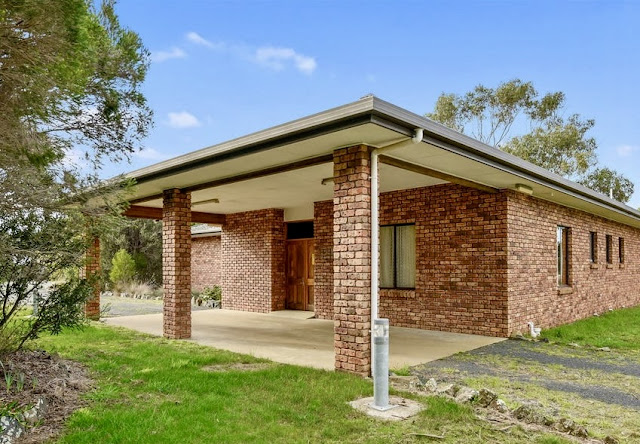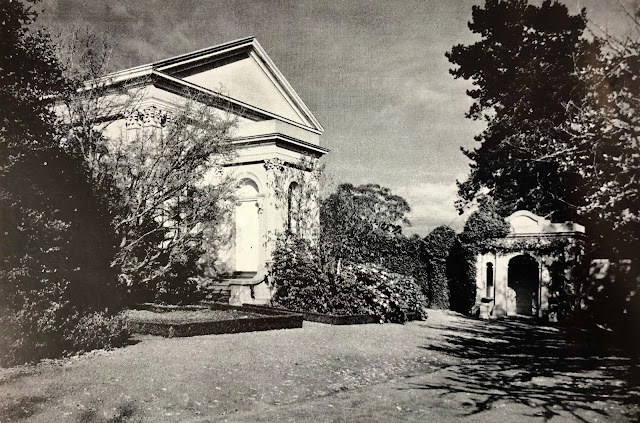No. 1449 - Margate - Kingdom Hall
Margate is a coastal town on the Channel Highway approximately 7 kilometres south of Kingston. The original settlement was closer to the sea however the modern commuter town is now centred along the highway where the town’s churches are located.
Margate’s Kingdom Hall is located off Van Morey Street and borders on the local Primary School. It is built in the style typical of most of the 21 Kingdom Halls established in Tasmania. No published information about the hall is available.
The Jehovah's Witness diverges from the mainstream doctrines of Christianity in that it is a non-trinitarian tradition. Jehovah's Witnesses believe their denomination is a restoration of first-century Christianity. The historical persecution of members of the Jehovah’s Witness in many countries, including Australia, has further contributed to the denomination maintaining a low profile in the media. For this reason the history of the Jehovah Witness in Tasmania presents a challenge to research.
The following information is derived from the Jehovah Witness’ official tract ''The Watchtower':
“In the early 1900s a member of the International Bible Students Association, as Jehovah's Witnesses were known, was distributing Bible study publications in Tasmania. Literature was left with the postmaster at Queenstown, Tom Anderson, and he and his wife became Witnesses. Around this time, E. Brewster preached around the state. In about 1908 Bible students were active in the Westbury area, and spread to the north-east of Tasmania. The Witnesses operated radio station 7UV in Ulverstone from 1934 to spread the Bible's message. In 1945 the Witnesses purchased their first Kingdom Hall (church) in Hobart".
Margate’s Kingdom Hall is located off Van Morey Street and borders on the local Primary School. It is built in the style typical of most of the 21 Kingdom Halls established in Tasmania. No published information about the hall is available.
The Jehovah's Witness diverges from the mainstream doctrines of Christianity in that it is a non-trinitarian tradition. Jehovah's Witnesses believe their denomination is a restoration of first-century Christianity. The historical persecution of members of the Jehovah’s Witness in many countries, including Australia, has further contributed to the denomination maintaining a low profile in the media. For this reason the history of the Jehovah Witness in Tasmania presents a challenge to research.
The following information is derived from the Jehovah Witness’ official tract ''The Watchtower':
“In the early 1900s a member of the International Bible Students Association, as Jehovah's Witnesses were known, was distributing Bible study publications in Tasmania. Literature was left with the postmaster at Queenstown, Tom Anderson, and he and his wife became Witnesses. Around this time, E. Brewster preached around the state. In about 1908 Bible students were active in the Westbury area, and spread to the north-east of Tasmania. The Witnesses operated radio station 7UV in Ulverstone from 1934 to spread the Bible's message. In 1945 the Witnesses purchased their first Kingdom Hall (church) in Hobart".




Comments
Post a Comment